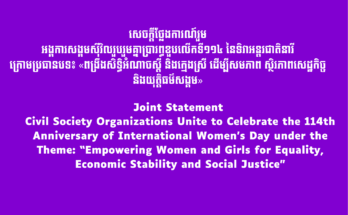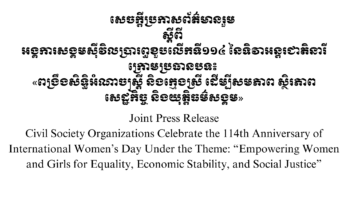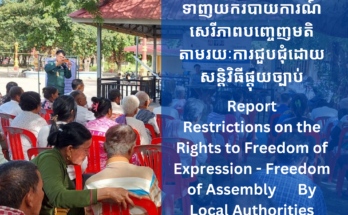Last week experts testified regarding the fitness to stand trial of Ieng Thirith, former Minister of Social Affairs under the Khmer Rouge regime. The expert testimony comes after a previous ruling by the Trial Chamber that she was unfit to stand trial and should be released on 17 November 2011. However, this decision was later overturned by the Supreme Court on 13 December 2011. The Supreme Court ruled she would remain in detention under medical care and observation for six months at the conclusion of which another hearing would determine whether she was fit to stand.
The Trial Chamber began hearing expert testimony regarding the matter last week. The team consisted of Dr. John Campbell (New Zealand), Dr. Seena Fazel (United Kingdom) and Dr. Huot Lina (Cambodia).The experts’ testimonies unanimously supported the position that Ieng Thirith is suffering from severe and degenerative dementia and cognitive impairment and therefore is not fit to stand trial.
However, this position was challenged by Ieng Thirith’s primary care doctor, Chak Thida, who testified that given her gender and familiarity with the patient, she had been able to obtain more accurate test results. She concluded that Ieng Thirith has no signs of cognitive impairment implying she is fully capable to aid in her own defense, instruct her counsel, follow the trial proceedings, and other requirements of fitness to stand trial in accordance with international standards of the rights of the accused. Her statements were challenged by the Trial Chamber judges who called into question the integrity of the parallel clinical tests she had conducted, which she claimed returned normal results. It was revealed that Dr. Thida had altered the questions and at times prompted the patient, calling into question the accuracy of the tests.
The team of experts answered the fears that Ieng Thirith was ‘faking’ her impairment, as voiced by Trial Chamber Judge Cartwright, by explaining that certain aspects of her mental degeneration, such as personal hygiene, incontinence and her indifference to them, would be extremely difficult to fake. They further explained that Ieng Thirith’s behavior towards staff had fluctuated between polite and aggressive. Such fluctuations are not characteristic of patients inventing their symptoms who generally maintain a certain set of behaviors consistently.
The hearings concluded on Friday, 31 August, and the Trial Chamber President expected to issue its decision regarding Ieng Thirith’s fitness ‘in do course’. However, this time frame is not binding and the decision may take longer. Furthermore, as with the previous decision, this Trial Chamber decision may be appealed to the Supreme Court. Once the Trial Chamber decision is issued, parties will have 15 days within which they may file for appeal to the Supreme Court.



